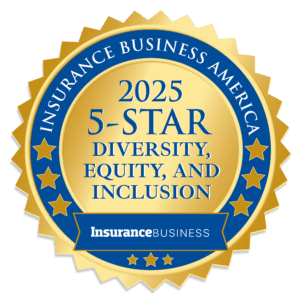How are 5-star Insurance Innovators responding to the pandemic?

To adapt, Honan turned to technology to drive engagement across its global staff and sought ideas from outside the insurance industry to prompt change.
“Instead of talking monthly or bi-monthly, conversations and presentations could be done weekly,” Fluitsma said. “Bi-weekly company-wide town halls made the business smaller and bought staff closer together, keeping the whole business up to date.”
This built internal engagement and contributed to a 25% rise in the brokerage’s business.
“By leading the way with new tools, systems and approaches to work, it allows us to drive new solutions to clients and ensure we continue to add value and efficiencies to their businesses,” Fluitsma said. “We consistently see our innovations drive efficiencies through data sharing and deliver insights that aid business decisions through analytics and reporting.”
In response to a gap in coverage for COVID-19 infections, Allianz Partners launched a new product to support airline travellers, known as COVID Travel Protection. Funded by the airlines, it covered medical and other costs for customers who tested positive for the virus or had to quarantine.
“Considerable success was achieved through supporting Olympic athletes with the product whilst flying on [Japan Airlines] to compete at the Olympic Games,” said Ben Elliott‑Yates of Allianz Partners.
Other companies also introduced coverage for COVID-19. Cover Growth worked with Skyscanner to provide COVID-19 insurance with no exclusions, while Digit Insurance created a group COVID-19 product designed to insure workers across several industries, including entertainment, production houses, financial institutions and hospitals.
Tanya Marwah, brand marketing head at Digit Insurance, said the coverage responded to the most affected sections of the Indian economy that were not able to function fully due to virus concerns and has “covered over 2.5 million lives and 24,000 groups”.



